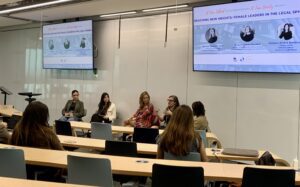This piece has been selected as the winner of an article contest hosted by the Law Society and The Stork with the prompt: “analyze the effectiveness of the ICJ in persecuting violators of international law.”By Matias J. Paños
The International Court of Justice (ICJ), which has its seat in The Hague, Netherlands, is the principal judicial organ of the United Nations (UN). As stated on its official website, The Court has a twofold role: to settle, by international law, legal disputes submitted to it by States (contentious cases) and to give advisory opinions (advisory procedures) on legal questions referred to it by duly authorized United Nations organs and specialized agencies.
In contentious proceedings, when a dispute is brought before the Court by a unilateral application filed by one State against another State, the names of the parties in the official title of the case are separated by the abbreviation v., for the Latin versus (e.g., Cameroon v. Nigeria). When a dispute is submitted to the Court based on a special agreement between two States, the parties’ names are separated by an oblique stroke (e.g., Indonesia/Malaysia).

The first case entered in the General List of the Court (United Kingdom v. Albania) was submitted on 22 May 1947. Between 22 May 1947 and 11 April 2024, 194 cases were entered into the General List.
Having made this brief introduction, objectively I can say that the ICJ has a very genuine and valuable mission in this volatile world. Most of the time, the disputes between different nations and countries must be resolved by a third independent party with no other goal but to impart justice in a specific case. But here relies on the most relevant issue, which raises the following questions: is the International Court of Justice an independent and impartial organism, or is it, like any other human-integrated organization, influenced by its own interests and ideology? And as a consequence, is it effective in persecuting violators of international law?
From my perspective, the creation of entities like the ICJ, the World Health Organization (WHO), the International Labour Organization (ILO), Amnesty International (AI), and even the UN itself was helpful, necessary, and transparent in their origins. Unfortunately, as years passed, their reputation and, thus, their ruling power began to decrease. Nevertheless, of all the organizations mentioned before, the ICJ is one of the few that maintain their high standards. But even when these organizations have good intentions with their decisions, they don’t have the faculties to interfere or intervene in any country’s issues. For a decision to be sanctioned and applied, it can take several years, and countries have a lot of legal tools and resources to delay those decisions more and more. And even when a dispute has a final sentence by the ICJ, some nations disobey them. But why is this happening?
Until recent years, the world had been moving towards globalization, and my impression right now is that nowadays, countries and regions are tending to close themselves in a way that we weren’t expecting. This affects, among other things, international commerce, tourism, immigration, different kinds of businesses, and traveling in general. It also affects institutions like the ICJ since governments think they are the kings of their nations and that no one can tell them what to do or not do without compromising their sovereignty.
The consequences of our representatives’ inappropriate behaviors have implications in many different ways. As students, citizens, and, most importantly, human beings, we live, learn, and act according to rules, principles, norms, and morals. And if the people responsible for our countries’ destinies don’t comply with the judicial sentences imposed by legally binding entities, are we still obliged to obey their laws and decisions? I think that’s the most important lesson about this topic. We, human beings, live by incentives. If we have incentives to act reasonably, we will do it, but if we don’t have enough incentives to do so, we’ll most certainly do the opposite. I believe morals and principles are intrinsic to humans, but they also need to be reinforced by those in charge of power through fair and equitable norms that everybody can respect and follow.
To clarify and conclude my opinion on this proposed topic, I find the world is going through a very complex transition phase, with lots of international wars and conflicts happening, and institutions that were prestigious and respected by everybody, like that of the International Court of Justice, are now being questioned and confronted by the same countries that once asked for their help to solve international law disputes in which they were involved. These behaviors not only prevent peaceful solutions for conflicts between nations, but most importantly, they set bad examples and precedents for the rest of the society, meaning that if leaders don’t comply with the rules, why would the rest of the mortals do it?
Featured image courtesy of Unsplash.com







